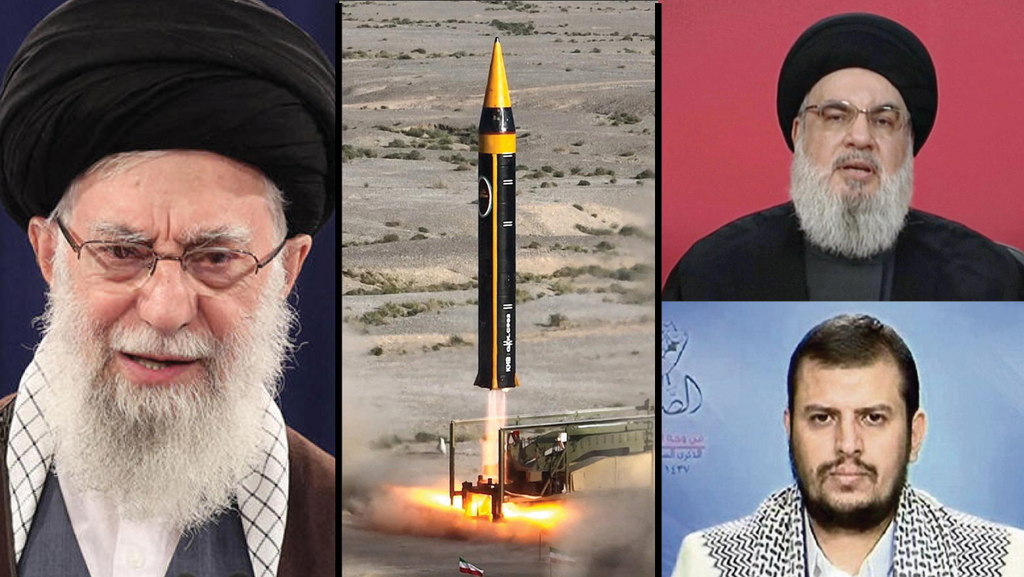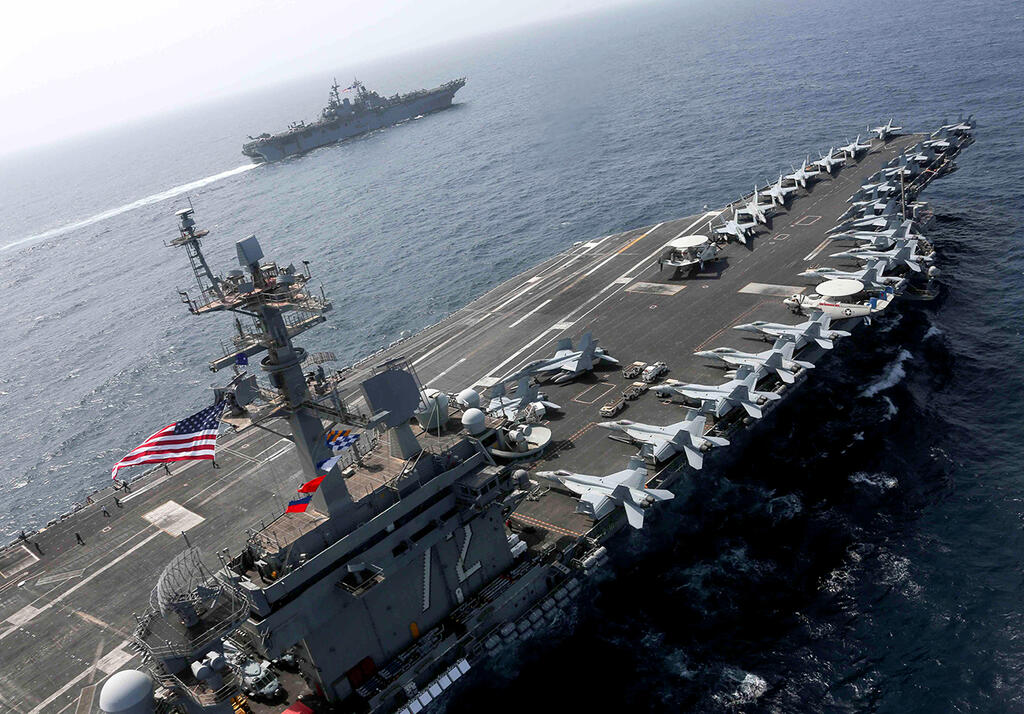Getting your Trinity Audio player ready...
Over the weekend, Israel held a series of discussions and consultations among its political and security leaders in anticipation of potential retaliation from Iran and Hezbollah. The concerns follow the targeted killings attributed to Israel of Hamas leader Ismail Haniyeh and Hezbollah military chief Fuad Shukr.
Israeli officials consider a combined or separate attack inevitable, although there remains uncertainty regarding its timing and scale. The nation is preparing for multiple scenarios, including severe ones, while also deliberating a preemptive strike before any retaliation reaches Israel.
2 View gallery


The axis of evil
(Photo: Alex Kent / GETTY IMAGES, Al-Manar TV/Handout via REUTERS, Reuters, screengrab)
Government ministers were briefed to prepare for all possibilities, with warnings that an attack could happen at any moment, potentially escalating into a multi-front war with widespread destruction.
In a precautionary measure, some ministers have been provided with satellite phones to ensure communication in case of cellular network failures, a plan already implemented in government offices involved in emergency preparedness.
Israeli security sources indicate that Hezbollah is seeking a significant attack on Israel, potentially targeting more than just military objectives. The assessment is that Iran has yet to finalize its response plan. A security source noted that the coordination between Israel and the United States and their readiness to thwart attacks significantly influences Iran's calculations.
Intensive discussions are reportedly underway between Jerusalem and Washington to maximize coordination to deter Iran and Hezbollah. The U.S. has deployed an aircraft carrier and fighter squadrons to the region, preparing to act similarly to the coordinated operation on April 13, when several nations, including moderate Arab states, worked to intercept an attack of hundreds of drones and missiles from Iran. The working assumption is that the upcoming assault could be more extensive, intense and deadly.
A senior Israeli official expressed concerns that if the attack launches from multiple fronts at a rapid pace, it will be challenging for Israel and the U.S. to counter, potentially resulting in numerous casualties. However, such a scenario would enable a stronger response with global backing.
Iran and Hezbollah have spent decades building military power with the intention of using it one day. Officials urge the public not to be misled by the bustling beaches and crowded restaurants, warning of "critical days where war could break out at any moment."
Political sources say that Israel is preparing both defensively and offensively. "We are fighting not only Hamas but the entire axis of evil," they said. "We have led a very aggressive policy, proving that we can strike at any time, any place and against anyone.
“Three weeks ago, we eliminated Hamas chief of staff Mohammed Deif, two weeks ago, we struck the Houthis harder than ever since the war began, and three days ago, we eliminated Hezbollah's chief of staff. Our enemies know we are very determined and are not being led like sheep to the slaughter."
Despite the tense situation and uncertainty, Israel has refrained from issuing public instructions on how to prepare, resulting in what some see as a failure of the emergency public communication system and a puzzling decision by the political and security establishments.
Security officials said that the decision not to alter public guidelines stems from lessons learned from the April 13 attack. "One of the things we learned from April is to maintain routine. The instructions then led Iran to intensify its assault," they explained. Should the need arise, they assured, "instructions will be issued promptly."




